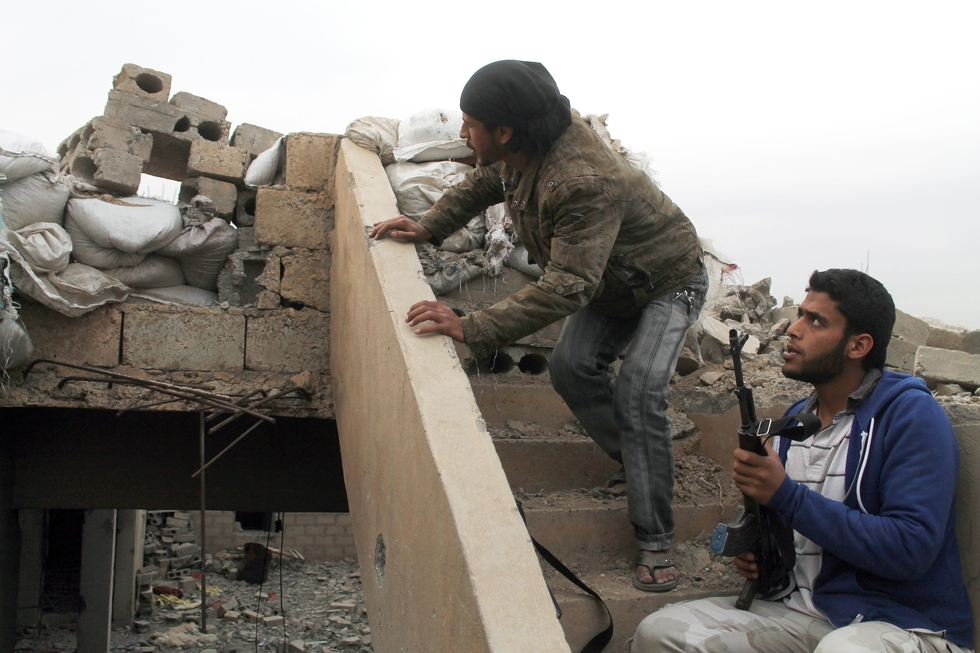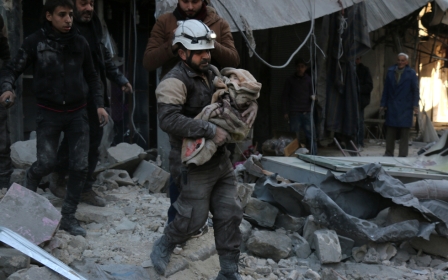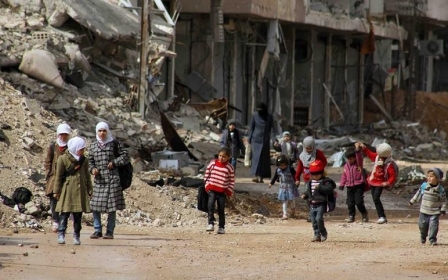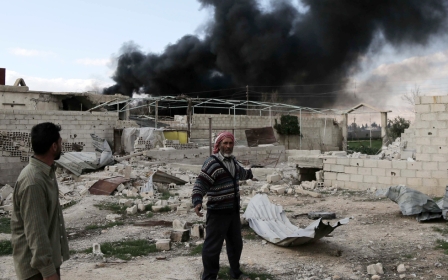WFP air drops aid to besieged Syrian city of Deir Ezzor

The World Food Programme has carried out its first successful high-altitude air drop to deliver 20 tonnes of food aid to the besieged Syrian city of Deir Ezzor.
A previous attempt to drop aid on the city, where 200,000 people have been living under siege by the Islamic State (IS) group since March 2014, failed in February, WFP said in a statement on Sunday.
The successful air drop was the first time WFP has managed to get aid to the city, around 120 kilometres (70 miles) southeast of the militant group's de facto capital Raqqa, since the start of the siege over two years ago.
The supplies, enough beans, chickpeas and rice to feed 2,500 people for a month, were collected for distribution in the city by the Syrian Arab Red Crescent.
Aid to residents of the city has previously been dropped by Russian air craft and has mostly been collected by the Syrian government forces who are fighting IS in Raqqa.
"More air drops are planned for the coming days to meet food and other humanitarian needs for the besieged population," WFP said, adding that air drops would always be a last resort used when land access was impossible.
IS has been battling to capture the Syrian government airbase in Deir Ezzor, which provides the only supply route other than airdrops to the government-held sector of the city.
The February airdrop failed with some of the pallets missing the drop zone and others being damaged due to their parachutes failing to function properly.
New MEE newsletter: Jerusalem Dispatch
Sign up to get the latest insights and analysis on Israel-Palestine, alongside Turkey Unpacked and other MEE newsletters
Middle East Eye delivers independent and unrivalled coverage and analysis of the Middle East, North Africa and beyond. To learn more about republishing this content and the associated fees, please fill out this form. More about MEE can be found here.




